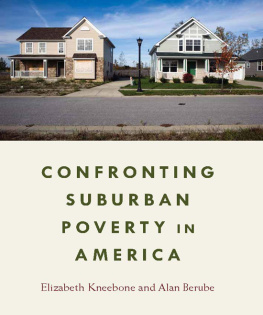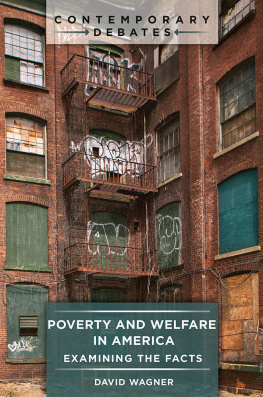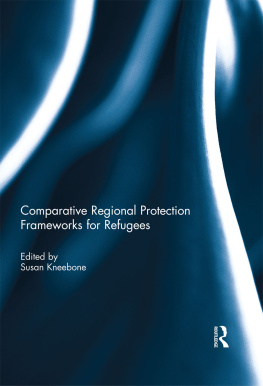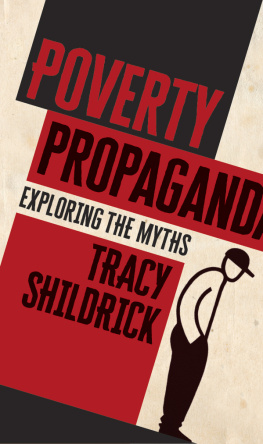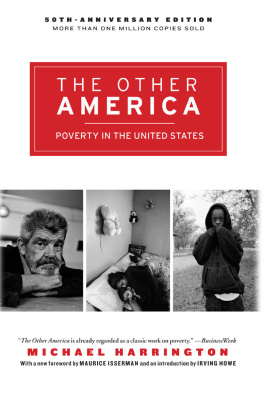I t has been nearly a half century since President Lyndon Johnson declared war on poverty. Back in the 1960s tackling poverty in place meant focusing resources in the inner city and in rural areas. The suburbs were seen as home to middle- and upper-class familiesaffluent commuters and homeowners looking for good schools and safe communities in which to raise their kids. But today's America is a very different place. Poverty is no longer just an urban or rural problem, but increasingly a suburban one as well. In Confronting Suburban Poverty in America, Elizabeth Kneebone and Alan Berube take on the new reality of metropolitan poverty and opportunity in America.
After decades in which suburbs added poor residents at a faster pace than cities, the 2000s marked a tipping point. Suburbia is now home to the largest and fastest-growing poor population in the country and more than half of the metropolitan poor. However, the antipoverty infrastructure built over the past several decades does not fit this rapidly changing geography. As Kneebone and Berube cogently demonstrate, the solution no longer fits the problem.
The spread of suburban poverty has many causes, including shifts in affordable housing and jobs, population dynamics, immigration, and a struggling economy. The phenomenon raises several daunting challenges, such as the need for more (and better) transportation options, services, and financial resources. But necessity also produces opportunityin this case, the opportunity to rethink and modernize services, structures, and procedures so that they work in more scaled, cross-cutting, and resource-efficient ways to address widespread need. This book embraces that opportunity.
Kneebone and Berube paint a new picture of poverty in America as well as the best ways to combat it. Confronting Suburban Poverty in America offers a series of workable recommendations for public, private, and nonprofit leaders seeking to modernize poverty alleviation and community development strategies and connect residents with economic opportunity. The authors highlight efforts in metro areas where local leaders are learning how to do more with less and adjusting their approaches to address the metropolitan scale of povertyfor example, integrating services and service delivery, collaborating across sectors and jurisdictions, and using data-driven and flexible funding strategies.
We believe the goal of public policy must be to provide all families with access to communities, whether in cities or suburbs, that offer a high quality of life and solid platform for upward mobility over time. Understanding the new reality of poverty in metropolitan America is a critical step toward realizing that goal.
from Chapter One
Elizabeth Kneebone is a fellow in the Metropolitan Policy Program at the Brookings Institution. Alan Berube is a senior fellow and deputy director at the Metropolitan Policy Program.
Jacket design by Rebecca S. Neimark, Twenty-Six Letters
Cover photograph: Dustin Franz/The New York Times/Redux
CONFRONTING SUBURBAN POVERTY IN AMERICA
Elizabeth Kneebone
Alan Berube
Brookings Institution Press
Washington, D.C.
Copyright2013
THE BROOKINGS INSTITUTION
1775 Massachusetts Avenue, N.W., Washington, DC 20036
www.brookings.edu
All rights reserved. No part of this publication may be reproduced or transmitted in any form or by any means without permission in writing from the Brookings Institution Press.
Library of Congress Cataloging-in-Publication data
Kneebone, Elizabeth.
Confronting suburban poverty in America / Elizabeth Kneebone and Alan Berube.
pages cm
Includes bibliographical references and index.
ISBN 978-0-8157-2390-5 (hardcover : alk. paper)
1. PoorGovernment policyUnited States. 2. PoorUnited States. 3. SuburbsUnited StatesEconomic conditions. I. Berube, Alan. II. Title.
| HV95.K57 2013 |
| 362.5'560973091733dc23 | 2013009767 |
9 8 7 6 5 4 3 2 1
Printed on acid-free paper
Typeset in Sabon
Composition by Peter Lindeman
Arlington, Virginia
Printed by R. R. Donnelley
Harrisonburg, Virginia
Foreword
In January 1964 President Lyndon Johnson spoke to Congress and the American people to announce that the United States was declaring a war against poverty: It will not be a short or easy struggle, said Johnson. No single weapon or strategy will suffice, but we shall not rest until that war is won. The richest Nation on earth can afford to win it. We cannot afford to lose it.
What came next were a set of ambitious initiatives, from Head Start and Job Corps to Vista and a host of other antipoverty programs. As a boy growing up in the South Bronx, raised by a working mother who made $50 a week, living in a tenement surrounded by what were at the time the most dangerous streets in America, I was offered real hope for a better life by these programs. That was fifty years ago.
Today, the War on Poverty is out of the national consciousness, but the deep-rooted inequities it attempted to ameliorate are still very much with us. Worse, the continued economic bifurcation of our society has too often pushed poverty beyond our sight. The geography of poverty and opportunity in the United States looks strikingly different. The majority of the metropolitan poor now live outside cities, and the suburban poor are the fastest-growing low-income population in the country.
As Elizabeth Kneebone and Alan Berube have painstakingly documented in Confronting Suburban Poverty in America, there are today poor families in suburban communities such as Seat Pleasant, Maryland; Edgewater, Colorado; and Mount Vernon, New York, facing many of the same challenges that I faced decades ago in the South Bronx.
American suburbs close to prospering urban centers, once the aspiration of city dwellers and the key to a better life, have now become home to the same cycles of poverty that in previous decades trapped people in the nation's bleakest urban neighborhoods. Ironically, a child growing up today in one of this nation's poorest suburban zip codes may have a more difficult path to opportunity and inclusion than we did in the South Bronx. To be sure we attended underperforming schools, lived in substandard housing, had a dearth of good available jobs, and dealt constantly with the fear of crime. But at the same time Manhattan was then just an inexpensive subway ride away and offered us a range of economic, educational, and cultural opportunities.
That community safety netthe infrastructure that augments incomes, supplements education, and knits together health services for a plethora of familieskept many from falling deeper into poverty and despair. For some of us it became a path to a better and more contributory life. Indeed, the War on Poverty was transformational. In 1964, 19 percent of the country found itself living below the poverty line. By the end of the decade that number had dropped to 12 percent, because the lives of millions of Americans had changed in the process.
But in recent years those numbers have risen, and for poor suburban families, their challenges are compounded by lengthy and costly commutes to work, a lack of reliable public transportation, and an absence of basic health and social services that are more fully available and established in urban neighborhoods.
Very little infrastructure exists to expand opportunity among the poor in the nation's suburbs, in part because the way we think about poverty in America is dominated by stereotypes and solutions from a bygone era. That's why


